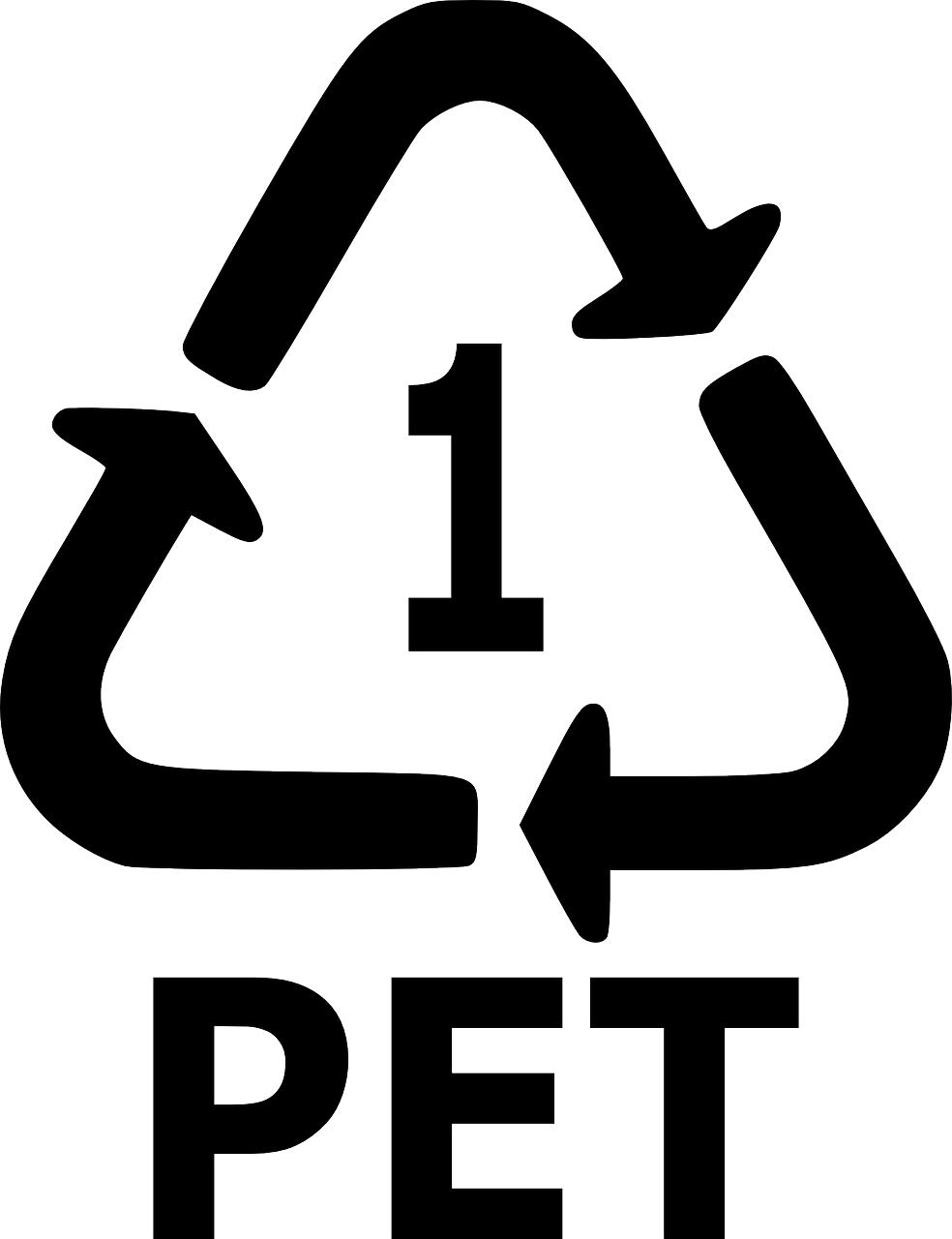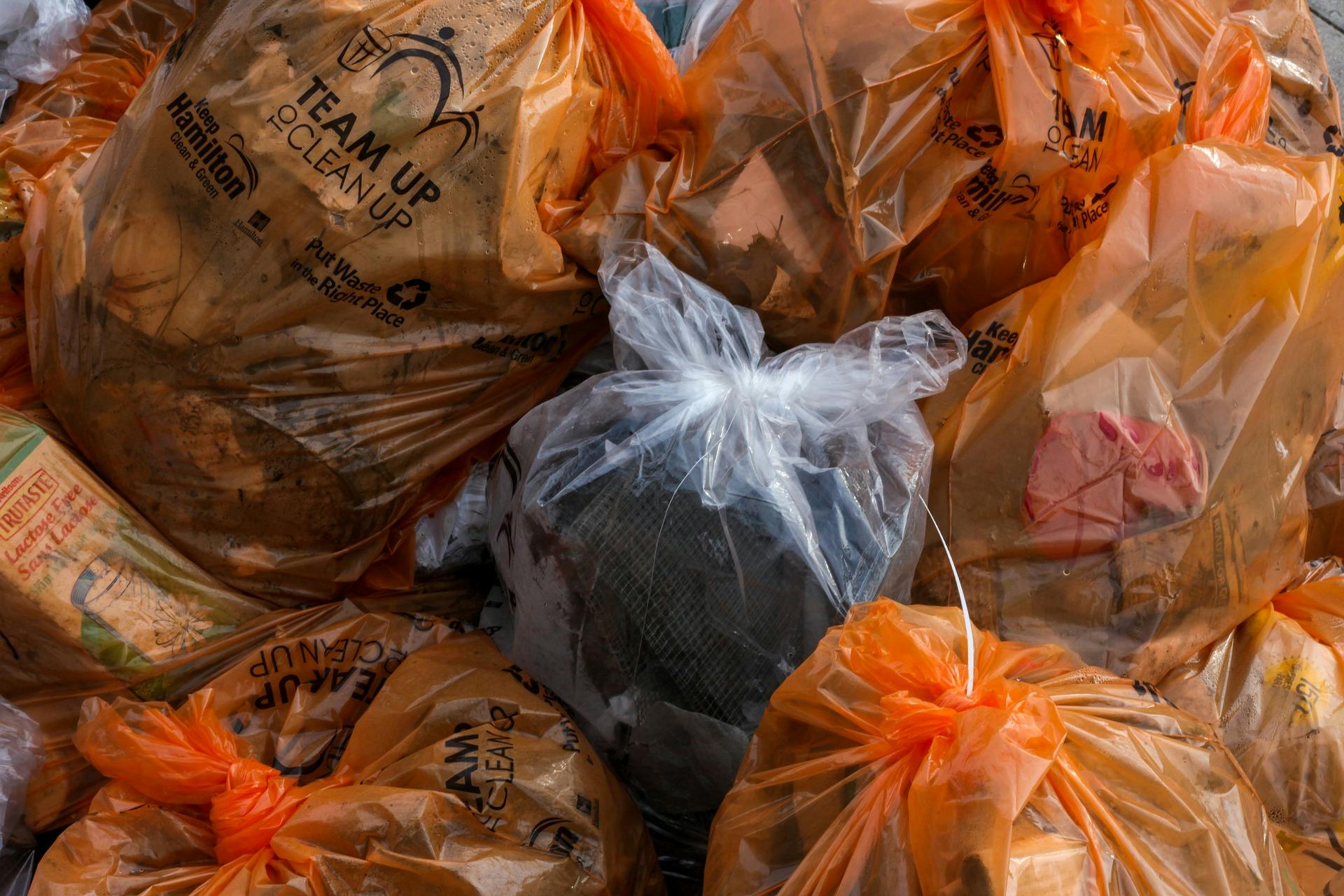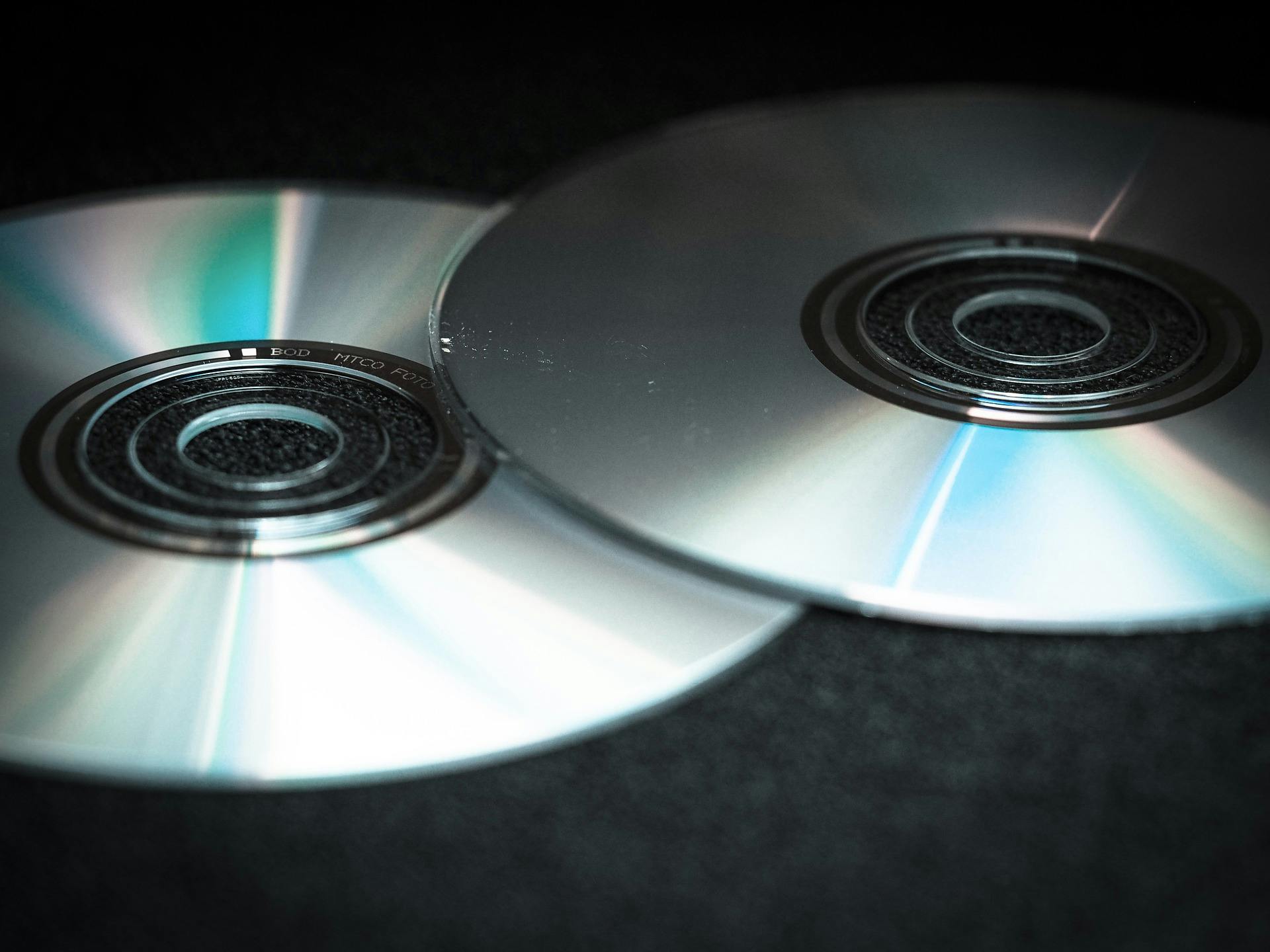Recycling plastic isn’t as hard as people think. Yes, there are a wide variety of plastics and not all of them can be recycled in your bin, but luckily you don’t have to guess. You can use this plastic recycling guide.
In fact, plastic products even tell you how to recycle them through the numbered recycling symbol system. And to make things even easier, once you know a few plastic items which can be recycled, it’s fairly easy to determine which other items can be recycled as well.
1 – PETE or PET (Polyethylene Terephthalate)

Type 1 plastics are the most widely recycled. Items made from polyethylene terephthalate include water and soda bottles, and microwavable food containers. It is important to wash this type of plastic before recycling it because organic waste (e.g. food and drink waste) is considered a contaminant.
Despite 96% of all single-use drink bottles being made from polyethylene terephthalate, it only has a recycling rate of 31% in the United States. Simply by recycling more drink bottles we can drastically reduce the amount of plastic which ends up in our landfills and waterways.
2 – HDPE (High-Density Polyethylene)
Type 2 plastics are high-density polyethylene, which is commonly used to make shampoo bottles and milk jugs. This kind of plastic has a “wax-like” feeling/appearance compared to type 1 plastics. It can be recycled, but like type 1 plastics must be rinsed first.
3 – V or PVC (Vinyl)
Type 3 plastics are vinyl, and are commonly referred to as PVC. This type of plastic is often used to make clear food packaging and bottles for things such as mouthwash. Unfortunately, type 3 plastics cannot be recycled in your bin. However, they are still recyclable though special programs.
4 – LDPE (Low-Density Polyethylene)

Type 4 plastics are made of low-density polyethylene. Items made from this kind of plastic are generally thin, such as shopping bags. These plastics cannot be recycled in your recycling bin and because of this often end up as litter around our community. Some stores will accept shopping bags for recycling, so there is an option available.
5 – PP (Polypropylene)
Type 5 plastics have been in the news a lot recently due to the impact on the environment they have as litter. Polypropylene is used to make products such as medicine bottles and drinking straws. This type of plastic is only sometimes collected as part of municipal recycling programs. It’s best to leave these out of your recycling bin if you are unsure about whether or not your program includes them. Ask your residential recycling provider for more details.
6 – PS (Polystyrene)
Type 6 plastics are made from polystyrene. Items made from this type of plastic include disposable plates, cups, takeout containers, and egg cartons. These products fall into two different categories: “hard” plastics and styrofoam. Sometimes items made from polystyrene are recyclable in your bin, but often not products which fall into the styrofoam category.
7 – Other (Miscellaneous)

Type 7 plastics include every other type of plastic not previously mentioned. An extremely wide variety of plastics and products fall into this category. Because of that, type 7 plastics are not recyclable in the bin. However, depending on what a particular item is or is made out of, there are special recycling programs available.
Things to Remember when Recycling Plastics
Now that you know the different types of plastic and which ones can be recycled in your bin, there’s no reason not to recycle! But there are a few important things to keep in mind when recycling plastics — or anything else, really.
As mentioned in the plastic recycling guide, if you’re recycling a food container or bottle which contained something other than water, always make sure to rinse it out before recycling. Organic waste such as food scraps and grease are not recyclable and will contaminate other items during the recycling process. Just one unwashed piece of plastic could mean an entire load of potentially recyclable material has to be disposed of.
The same could also happen if you accidentally mix in other, non-recyclable plastics. “When in doubt, throw it out.” This means that if you aren’t sure whether or not a particular item is recyclable, the safe option is to treat it as non-recyclable. This could mean the difference between wasting one recyclable item or wasting an entire bin of recyclable items.
And, finally, even if you don’t remember which numbered plastics are recyclable, try to remember the characteristics of those which are or aren’t. For example, if it’s a drink bottle, it’s recyclable. Or, if it’s a thin plastic like a shopping bag, it isn’t recyclable. This knowledge alone can help you make more informed plastic recycling decisions even when you don’t have a plastic recycling guide in front of you.
Accurate Recycling Services
Accurate Recycling Services is a leader in recycling in the greater Philadelphia area. We service commercial, industrial, construction, and government entities in the Delaware, Chester, Montgomery, and Philadelphia counties. Contact Accurate Recycling Services today for more information on how our recycling services can help your business reduce its waste output.
